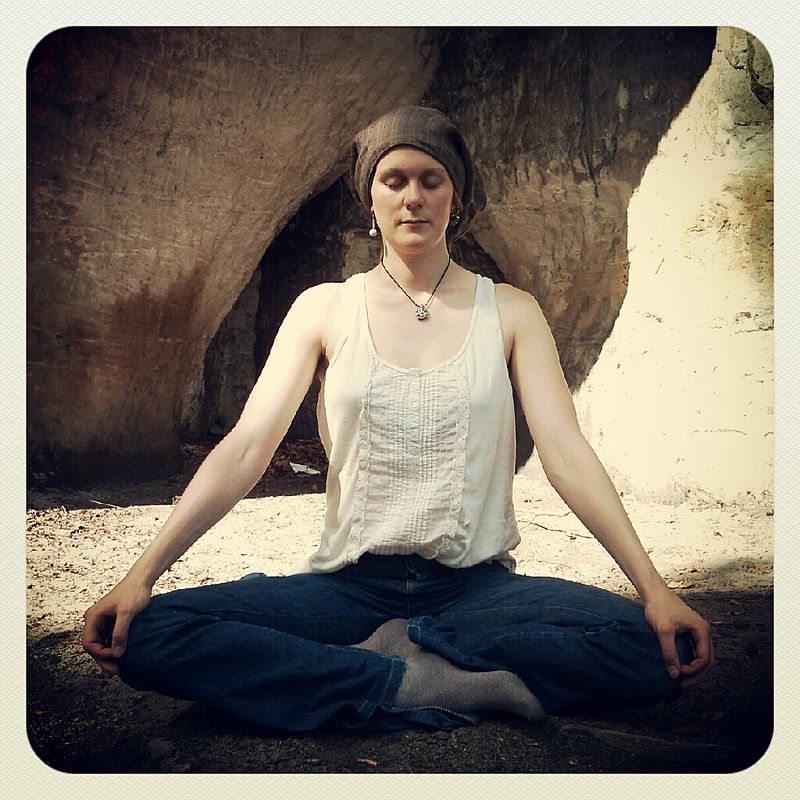 |
| Woman meditating outdoors Photo by |
Sometimes, when I am seeking tools for my mental health toolbox, I find an idea that grabs me. It can be some small quote or a much bigger concept, such as with equanimity. I came across equanimity as a mind-body practice in the book "Buddha's Brain" by Rick Hanson. As with mindfulness, loving-kindness, compassion and other themes in meditation, it takes time to develop and should help promote a more grounded mind.
As I understood it, equanimity is much like radical acceptance. It's being okay with what's happening and what's to come. It's like finding no difference between good and bad when it comes to your mental well-being. I thought of it as not caring if you laughed or panicked all day. I'm sure my understanding will become more robust as I research and practice equanimity. It's learning to stop mentally clinging to good, wishing for only good, chasing pleasure and running from pain. All of these things will come whether we wish them or not.
In my thus far limited reading on the topic, I've found it repeated often that equanimity is not indifference. Practicing it will not make you some zombie without feelings. You'll just, with practice and patience, learn to keep your ego from determining how you feel, what you want and how you react to life's inevitable negative situations. I'm still not entirely sure how it works, but I'm willing to give it a try. It seems like a nice idea, even if I'm not successful. It can't hurt to read and think about it.
If you decide to meditate a bit on equanimity, I think it's important that you find quality meditations on the topic. There are a lot of too brief, non-specific or unrelated meditations out there labeled as equanimity meditations. Find something that's a good fit for you or even enhance your knowledge on the topic before creating your own meditations. I'm not sure if it will help your anxiety, but you're doing a lot of thinking anyway. You might as well think with a purpose.
No comments:
Post a Comment